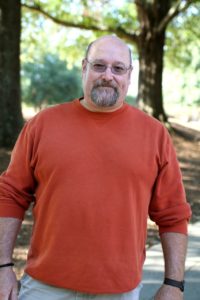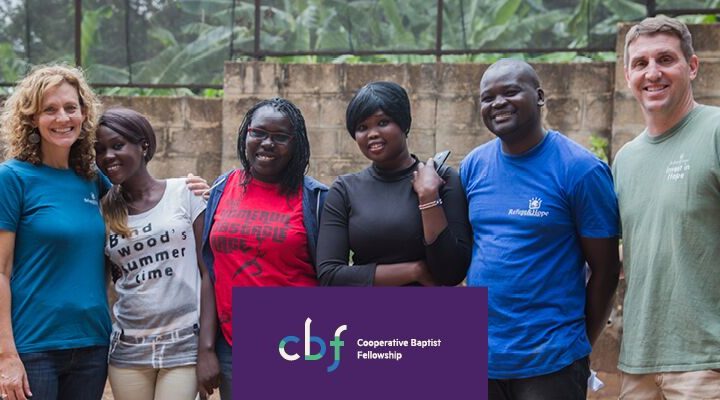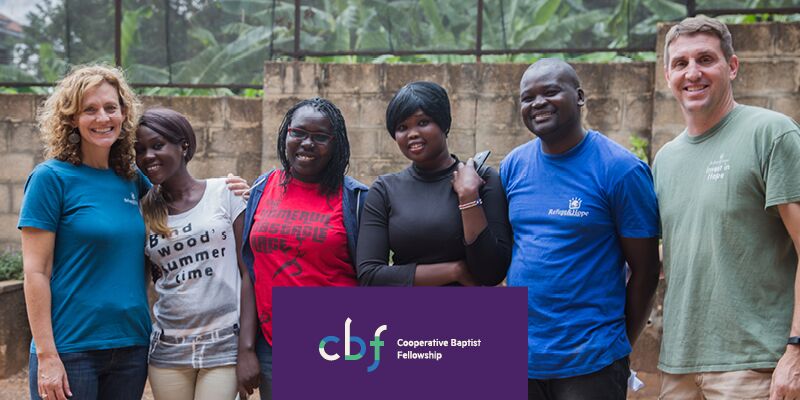By Blake Tommey
More than one-third of the Cooperative Baptist Fellowship’s field personnel are now addressing some form of global migration, according to Sam Harrell, associate coordinator of CBF Global Missions.
“That’s significant,” Harrell noted, “because global migration wasn’t initially a theme that we specifically chose until we discovered how much we were already addressing it. Now, it’s a major factor and one of CBF’s primary contexts.”
Since 2015, the world has witnessed the highest levels of forced displacement globally recorded since World War II, as the number of refugees and asylum-seekers has dramatically surged around the world. Among the more staggering trends in global migration is the constant flow of migrants into the United States, the largest single migrant destination in the world. Oil booms on the Arabian Peninsula, however, have created the world’s largest flow of regional migration, from Southeast Asia to the Middle East.

Sam Harrell
In addition, burgeoning conflicts in Syria, Afghanistan and Iraq contributed to 1.2 million first-time asylum claims in the European Union in 2015, more than quadruple the number registered nearly 25 years earlier. Since 1990, Spain’s migrant population has grown eightfold and Germany remains the second most popular destination for global migrants. Ultimately, however, the vast majority of global refugees continue to reside in other developing countries, as most refugees fleeing African countries such as Somalia, for instance, remain in Africa.
The causes of global migration are infinitely complex, and include poverty, overpopulation and violent conflicts, Harrell explained, but it boils down to a radically changing environment.
“Take the conflict in Syria, for example,” he said, “this doesn’t come from nowhere.”
“Farming policy was changed, droughts happened, people flooded to cities and conflict ensued. The desperation of people which would cause a rebel movement often has to do with the environment. The land is not producing, climate change is happening, policy is not conducive and people are grabbing the land or being forced off of their land.”
Add increasing environmental pressure to still-developing nations, and you have a recipe for migration, especially if those countries are already enduring high levels of poverty, Harrell pointed out. Families living in poverty frequently respond to higher rates of child mortality by having more children, which causes the population of developing countries to grow beyond their limited resources. Subsequently, that population must seek resources elsewhere to support its growth, or, if a conflict has developed, to escape the ensuing violence.
CBF Global Missions has always been poised to engage this phenomenon across the world, despite not initially targeting global migration per se, Harrell explained. As populations continue to shift at unprecedented rates, however, global migration has become one of CBF’s three major contexts for ministry.
CBF field personnel working among migrants include Missy Ward-Angalla, Jade and Shelah Acker and Karen Alford in Uganda, who receive individuals and families fleeing conflict in Somalia, Sudan, the Democratic Republic of Congo, Burundi, Ethiopia and Rwanda. Each year, they empower more than 1,000 refugees through health care, education, leadership and development opportunities, and walk alongside them as they rebuild their lives in Mbarara and Kampala.
In Europe, Eddie and Macarena Aldape receive Sub-Saharan migrants in Albacete, Spain, and partner with local organizations to guide them through asylum registration, language acquisition, cultural assimilation and acquiring basic resources. Also based in Spain, Matt and Michelle Norman assist local churches in connecting with a large influx of refugees and immigrants to Barcelona. Across the Mediterranean in Beirut, Lebanon—where immigrants comprise one-third of the population—Chaouki and Maha Boulos engage refugees’ most urgent needs by distributing food and hosting medical and dental clinics for families and individuals fleeing nearby conflict zones.
Near and along the Texas-Mexico border, which sees the largest single flow of migrants in the world, Diann Berry, Karen Morrow and Butch and Nell Green work among both Latino and Muslim immigrants to provide language classes, employment training, mentoring and networking for a better life in the United States.
Going forward, CBF field personnel will continue to meet migrants’ urgent needs as well as help them develop full lives in their new home, Harrell says, but the rest of the developed world must do its part. As shrinking natural resources threaten the existence of millions, we can’t simply bring that population up to our own rate of consumption, he emphasized. We must come down.
“There must come a balancing,” Harrell stressed. “That means we folk on the top need to moderate consumption.”
“If you look at resource loads per capita around the globe, the United States uses 83 times that of Sub-Saharan Africa, for instance. The earth doesn’t have that many resources. So, along with ‘reduce, reuse, recycle,’ we’ve got to have ‘refuse’ in there somewhere. Our habits have to change, because that’s not sustainable for the earth and the other five billion people living on it.”
The Cooperative Baptist Fellowship is a Christian network that helps people put their faith to practice through ministry efforts, global missions and a broad community of support. The Fellowship’s mission is to serve Christians and churches as they discover and fulfill their God-given mission. Learn more at www.cbf.net.


